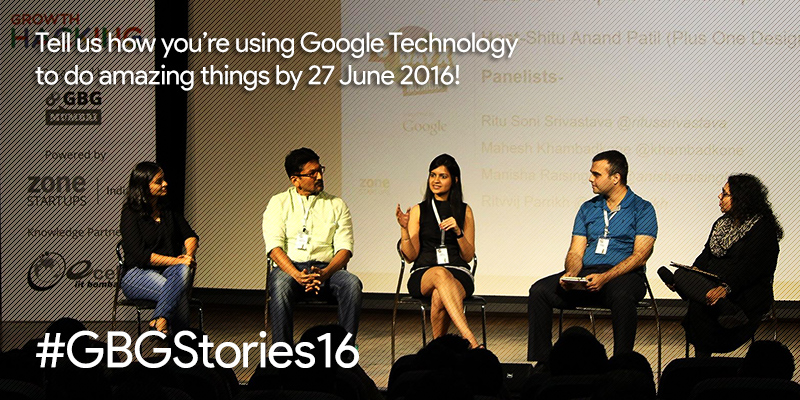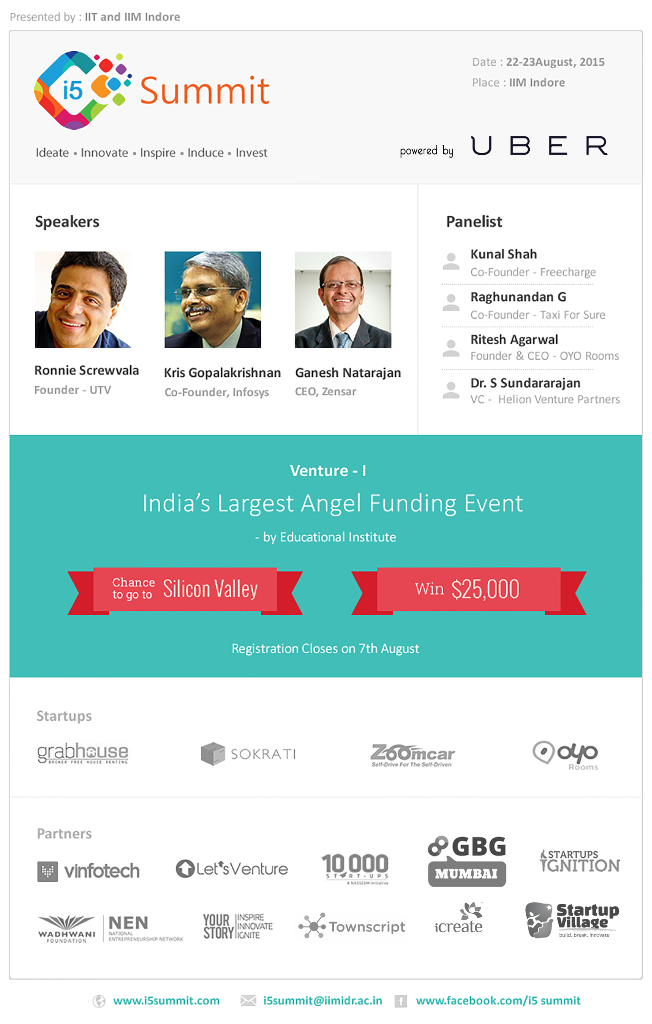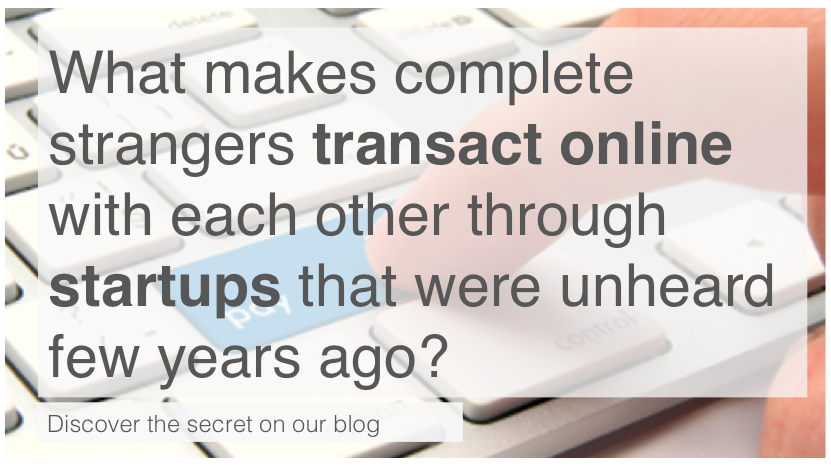Sharing economy or collaborative consumption opened doors to many entrepreneurs to fully utilize their underutilized assets, skills, space or time. It has created digital marketplaces for offline services through Uber, AirBnb, ebay etc to exchange value at an unprecedented scale.
Although technology plays a crucial role in this economy, the very foundation of it lies in something more human-Trust. This secret ingredient empowers users to identify and interact with each other safely. Since it’s such a crucial part of what we do at RentSetGo, I would like to share my two cents on it.
Before the Internet, the traditional way of building trust in retail transactions relied on 8 factors, identified in a paper by P. Resnick and R.Zeckhauser[1] (2001) titled: “Trust Among Strangers in Internet Transactions: Empirical Analysis of eBay’s Reputation System”. Quoting from the paper, the attributes of building trust traditionally are:
(1) Most retail transactions are conducted locally, which gives individuals the opportunity to inspect them, as say with fruit in a rural market. If quality is discernible, no trust is needed.
(2) Retail operations tend to be large relative to their local market, be they vegetable sellers or the local department store. Buyers have frequent interaction with the same seller, and learn whom they can trust.
(3) Even when one’s personal interactions are limited, given that a retailer’s sales are concentrated in a locale makes it easy to develop reputations so customers learn about retailers from their peers.
(4) Retailer reputations are borrowed from other contexts. For example, retailers are likely to be pillars of the church and community, and would be highly reluctant to sacrifice the status that comes from such reputations.
(5) Reputations are built over many years; witness the reputations of Sotheby’s and Christies, the leading auction houses, which are hundreds of years old.
(6) Reputations are borrowed from others. Thus celebrities will attest to the quality of products.
(7) New goods benefit from established brand names, and policing of quality by those who own them. The product, not the retailer, wins the reputation.
(8) Significant expenditures – e.g., building a fancy store on Manhattan’s Fifth Avenue– indicates that one will be reliable, lest this expenditure be wasted, a form of signaling.
However, with the advent of Internet, things changed drastically. Buyers-sellers or hosts-travellers or lenders-borrowers in a sharing economy don’t normally know each other from Adam or in most cases, never even meet. Products sold, at times, don’t even have brand names to back them while customers rarely repeat and do not run into each other. So how do online marketplaces like eBay, Amazon or sharing economy poster boys like Airbnb and Uber really work and build trust within their communities?
Lets take a quick look into how 2 top players in their respective fields have managed to crack this problem.
eBay:
One of the earliest and best known Internet reputation systems is run by eBay, which gathers comments from buyers and sellers about each other after each transaction.
- The feedback system allowed sellers to build their reputation from satisfied buyers and spread the word to a large population of potential customers through Internet at almost negligible cost.
- Empirical evidence suggests that, more than half the transactions received buyer feedback, most of which was positive, fostering positivity and virality into the community.
- Most importantly, as the participants believed this system was working, it deterred sellers from behaving badly, as it could result in a negative feedback and would be damaging to their reputation, hence future sales.
Airbnb:
In addition to the perks of the Internet that eBay enjoyed, Airbnb benefitted from the rise of social networks, which added another layer of identity to its members, fostering trust in the community.
As Airbnb CEO Brian Chesky puts it, “Trust, mediated by technology, is making a comeback. It’s what’s motivating millions of people in tens of thousands of cities around the world to book lodging with semi-screened strangers through this service.” Recent updates to the Airbnb review and rating systems have been implemented to extract more honest and accurate reviews from both the travellers and the host, that in the end benefit the Airbnb community at large.
- To enable both the host and the travelers to leave honest reviews (praise and criticism) Airbnb now reveals their reviews simultaneously to each other after the trip has been completed. That way neither is affected by the other’s bias
- As 90% of their reviews come within 2 weeks of travel they have shortened the review submission period to 14days, so that all the feedback is based on recent impression
Like these companies, others such as Amazon, Uber, TaskRabbit, Etsy, Threadflip etc have built impressive reputation models to support their communities and foster a trustworthy environment. Similarly, RentSetGo tracks user behavior through multiple data points and assigns ranks to its members using a proprietary algorithm in the backend. This helps in weeding out poorly rated members from the system and rewards good behavior by assigning higher search ranking on the platform.
In many ways, these reputation models form the core of any business based on sharing economy. These models have evolved considerably over the last decade and continue to do so with help of network effects, mobile and Internet penetration leading to the growing acceptance of such peer-to-peer businesses, and creating a cyclical, snowball effect. Reputation models leveraged by technology are the essence of the sharing economy and the future of this industry depends on how well we are able to extract the value of this currency of trust for the community.
[1] http://presnick.people.si.umich.edu/papers/ebayNBER/RZNBERBodegaBay.pdf










